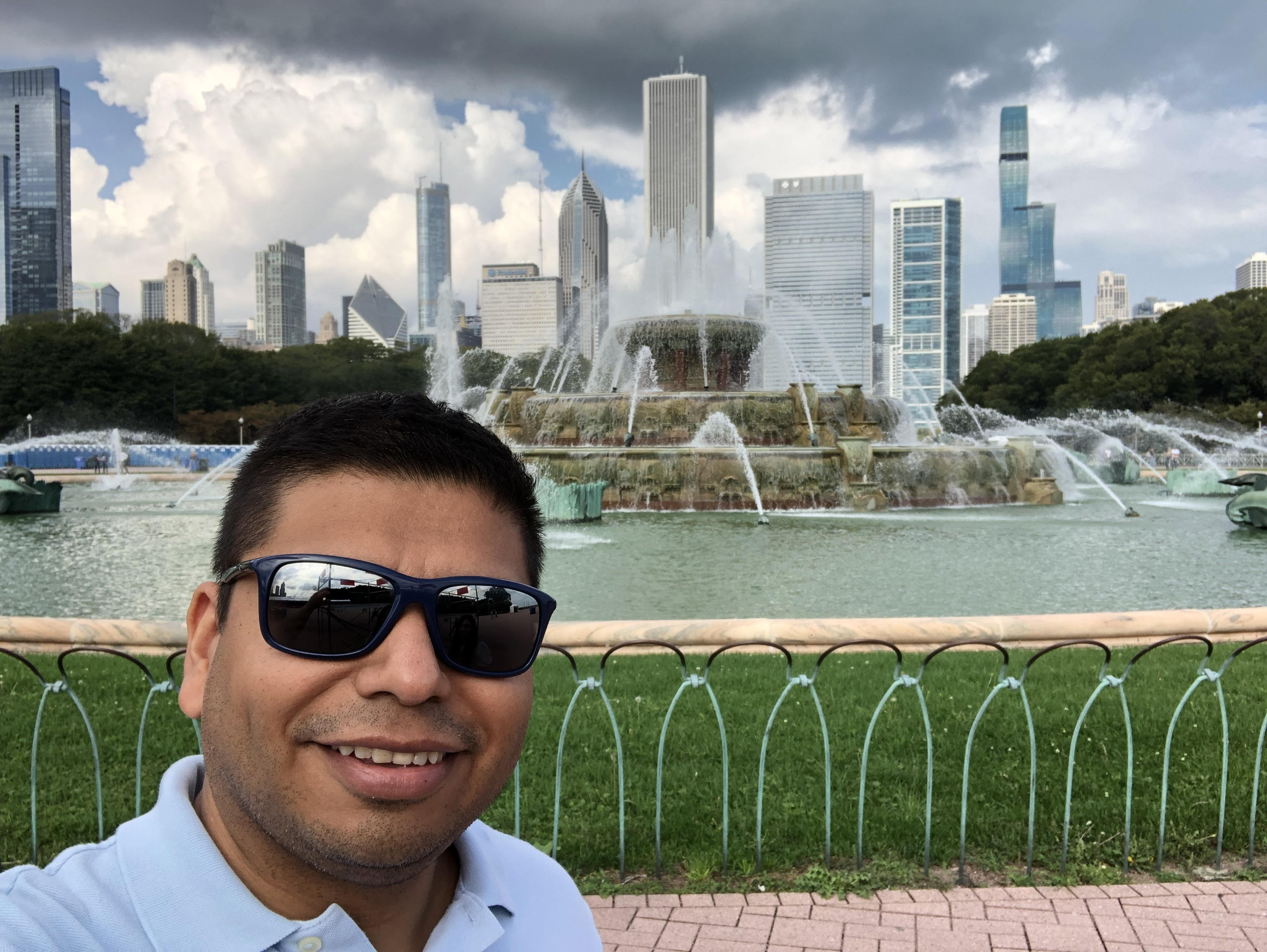Blogs

International Education Week 2021: Erick Vasquez
Erick S. Vasquez is an Associate Professor of Chemical and Materials Engineering at the University of Dayton. Originally from El Salvador, he received his Bachelors in Chemical Engineering from the Universidad Centroamericana José Simeón Cañas, and went on to earn a Master’s from Clemson University and his PhD from Mississippi State University.
When you think of home, what comes to mind?
I am from a town called Santa Tecla, La Libertad, in El Salvador next to the capital of San Salvador. It is near the beach, and a lot of tourists go there to surf. My immediate family is back there and I most certainly have fond memories from growing up there. After living there I moved to two different small towns in the US south for my graduate studies in engineering. Clemson University is in South Carolina and Mississippi State University is in Starkville, Mississippi. However disparate these locations may seem from each other, they have all become home, as has Dayton. Home to me is any place where I feel welcome, where I can be myself and where I feel loved. And I consider myself a highly adaptable person in creating a sense of home and community wherever I end up. You might wonder how this works? For me, the way to make a place home is to connect with others through commonalities and shared interests that may seem surface-level but that help to begin connections. For example, sports and food were some of the ways to adapt to small towns in the south. I watched a lot of college football at Mississippi State, I tried the typical food of the region. I am also a big music fan and love sharing music with people. For me, these kinds of small gestures have helped me to feel less homesick and really make these places home.
How is intercultural education important in science and in your field?
As an engineer, it is undeniable that intercultural communication and international education are crucial to the field. Much of engineering involves working with multinational companies that include workers from across the globe. Without the ability to communicate across cultures, the work of these companies would not be anywhere near as effective. Language and cultural barriers are very real among scientists and the shared language of science, in itself, does not negate these distinctions. Additionally, I have taken an interest in international education more recently in order to explore new areas and understand myself, my experiences and those of others with more sensitivity. Part of that has meant working as an instructor to expose students to international experiences, including through the COIL program at UD, where I have collaborated with Turkey and am now looking to collaborate with engineers back in my home country of El Salvador. These experiences are very important for engineering and other science students to see the great work being produced in different countries and cultural and geographical contexts. And while I do see myself as highly adaptable, I have started to take a keener interest in the challenges of adjustment that international students face, as I myself was an international student in the recent past. There are biases against foreign accents of international graduate students and many other complicated things to navigate. International education makes all of these barriers and differences more understandable, and ideally sensitizes people to them. For this reason, scientists should learn as much as they can about other cultures, other belief systems and other social and geographical contexts to enrich their scientific work.
